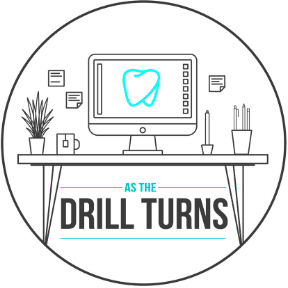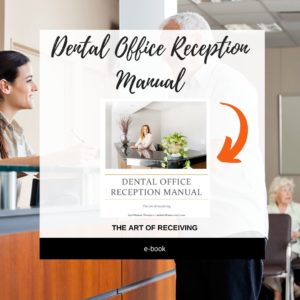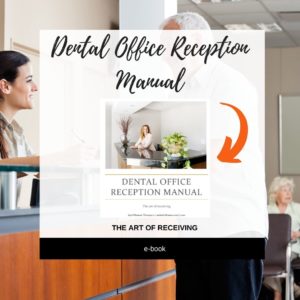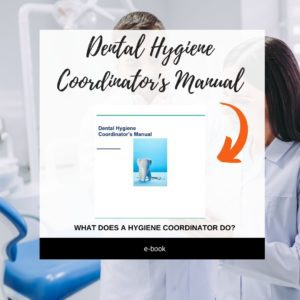Avoiding Dental Claim Denials With Attention To Detail
Avoiding dental claim denials requires great attention to detail! There are a million little, important things to know before submitting a dental claim. Just missing one of those millions of little things could result in a big fat $0. Even worse, you might have to resubmit your claim. And maybe your patient received a denial too. Which means, they are probably going to call you too to find out why!
Then, to add insult to injury, your insurance ageing report is affected. Triple whammy! Now you have to resubmit the claim, your patient has called and told you how to fix the claim, and now you have to see this same claim in your ageing report! It would feel so much better to see that claim paid at its first submission.

Sometimes, if we’re lucky, we can see where we went wrong right away. We can see that the seat date of the crown wasn’t on the claim form. Or maybe, it’s a perio maintenance claim and we didn’t submit history for this patient. Often, the claims don’t even come back to us denied. The insurance company holds them, seemingly, just waiting for our phone call. They might say they sent a denial. Where did that go?
True story. We once hired a woman to work in our billing office in a large multi-specialty dental practice. She had told us that she had worked with Blue Cross & Blue Shield of New Hampshire to set up the dental claims processing. Great! We felt she would have all the tricks up her sleeve we needed! We were so wrong! It didn’t take long for us to see, she followed a list of guidelines and rules. She had no idea what codes or x-rays or perio charts really did. She just knew she needed them with the claims to process.
Think Like An Insurance Company
Insurance companies are in the business of making money. And they do it well. And they do provide a service to us. Many times our new patients are referred from an insurance carrier listing. And a patient often finds comfort in knowing they have insurance benefits. But we have to be smart about it! And manage the insurance factor well. It’s critical for the dental practice to know each patient’s policy and coverage information. The insurance company has set down the rules that we play by if we want payment on a claim. We just have to follow them.
Lack of information is the # 1 reason dental claims are denied. Slow down before you hit that “batch” or “send” button. It’s so easy as you are rushing through the day, to just “think” you’ve got a claim all set to go. It’s worth the time and hassle to review the claim one last time and make sure.
Imagine you are processing a claim for payment. Put yourselves in the shoes of the insurance processor for just a minute. Look at the claim for their point of view. You have a checklist of things that you need for different procedure codes. If one thing is missing from that claim, you must deny it. Is something unclear or the claim hard to read? Deny it. That x-ray doesn’t show a fracture. Deny it!!
Now give them more than they need! Send photos and x-rays with your claims if it proves your case. Send detailed narratives explaining why a crown was redone. Provide history, perio charting, and x-rays with every perio maintenance claim. Does it sound like overkill? Not if you want each and every claim paid at it’s first submission!
Avoiding Dental Claim Denials With Timely Filing Of Claims
Most insurance companies require that dental claims be submitted within a year of treatment. Some insurance companies have shorter windows for claim submission. I’ve seen some companies with a 90 submission window. Hopefully, you are submitting claims soon after the procedure. Take time to make sure you have the correct codes, x-rays, and attachments. Don’t be so quick to send claims that you forget half of what you need!
Insurance ageing reports are your best tool! An unpaid claim can sit in an insurance ageing report and never bother anyone. It’s our job to find it, and get it paid. Sometimes, with claim re-submission or even with secondary insurance claims, things get lost. Stay on top of this insurance ageing report, and that won’t happen to you. Printing this report and working through it every week is a must!
So, how do we do that? If you have a large insurance ageing report, you won’t be able to work through the whole thing each week. Or, if you are super short on time, you still might want to break it down. For example, pick one day of the week that you work on insurance ageing. I chose Wednesday. Then, the first Wednesday of each month, I checked on all unpaid claims over 90 days.
There is one more report you want to run every day! The missed claims report. Your computer software may call it something else. Whatever it’s called, you need it! This report will show you what claims might have been missed for any time period you set. You might also have a secondary claims report. Check your list of reports to see what’s available for you to use. Another great report is a “created claims” report. A report like this would show you batched claims that somehow got deleted and were never sent.
Common Claim Mistakes That Cause Delays
Here is a list of items you might want to double check. The work and effort you put into the claim before sending it will pay off. Avoiding dental claim denials truly takes some time. But it’s so much better to put that time into the front-end. It will save you some headaches later.
- Include date of previous placement for crowns, bridges, and removable prostheses.
- Perio-maintenance claims may require current x-rays, perio charting, and history of perio maintenance or active treatment (varies from policy to policy)
- Detailed narratives must be brief and to the point. Use the “remarks” section No.35 of ADA claim form only for this.
- Payor ID is correct.
- Insurance Address is correct.
- Accurate information about your patient and insured person must be on the claim. Complete each field.
- Be sure you have the seat date for crowns, bridges, etc.
- Remember good x-rays and photos to support restorative treatment. Can you see the need for treatment?
- Missing tooth numbers for removable prostheses (date of prior extractions)
- Accurate secondary insurance information (include date of eligibility for both plans on the claim form)
Limitations, Exclusions, & Frequencies Come Into Play
This is where things get really tricky! But you can do it! And patients love and want to use their insurance benefits. Master this, and you will be a hero to your patients. Miss this mark, and your patients will be frustrated. Probably not with their insurance company. Most likely, they will be upset with you for not knowing their benefits!
Limitations
Limitations could be an annual or lifetime maximum. There’s no point in submitting a claim when you know your patient has reached their annual or lifetime maximum. Sometimes patients will ask us to submit the claim regardless. They are hoping somehow they will magically have money left to pay their claim. Try to avoid this. Explain to your patient that you know without a shadow of a doubt that they have reached their maximum. Also, let them know there are costs to send the claim.
Exclusions
Exclusions (or down coding) happens so much more than we want! Keep in mind, the insurance company exists to make money. That’s it! When they downgrade a procedure, they win! Who loses? The patient loses. What’s the best way to handle this? If the policy is unclear as far as downgrades, my recommendation is to send a predetermination or pre-estimate. Yes, they take time. So, take the time to talk to your patient about it. Let your patient know this is a situation where you are unsure how their insurance company will pay out. Let your patient know that you want to help them. You don’t want any surprises for anyone. Then stay on top of that pre-determination. Follow up on it every couple of weeks until you get it back.
Frequencies
Frequencies are the amount of times a certain procedure is allowed within a time frame. For example, a crown may be only allowed on one tooth every 10 years. There’s no point in submitting a claim for a tooth that had a crown done 7 years ago when this kind of limitation exists. Still, your patient may request this. It’s okay to very kindly tell them it’s not a covered benefit. Expect that your patient will be paying in full for this crown. And I think it is perfectly acceptable to tell them insurance companies don’t care why the crown is being replaced. They only care about following the policy in considering payment.






































